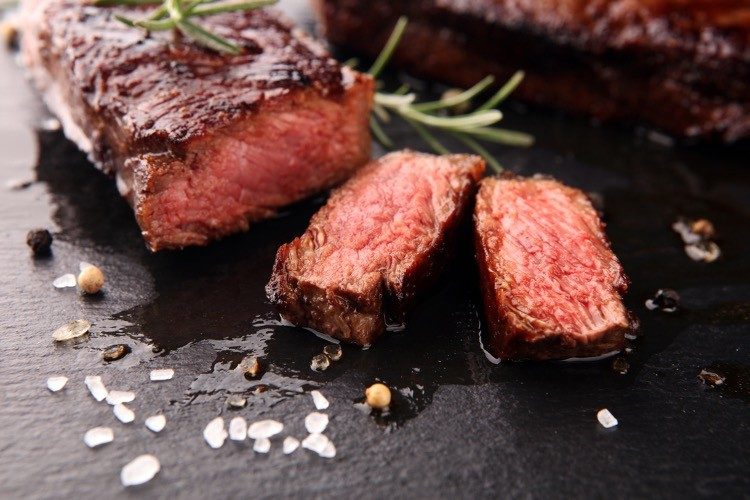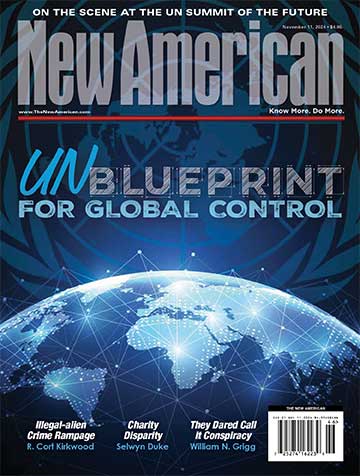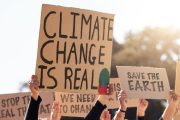
At the 28th Conference of the Parties (COP28) scheduled for Dubai at the end of this month, the UN Food and Agriculture Organization (FAO) will advise citizens of wealthy nations to eat less meat in order to help mitigate the climate crisis.
Climate zealots claim that agriculture accounts for approximately one-third of all greenhouse gas emissions on the planet. Livestock farming, in particular, is supposedly a major source of methane, deforestation, and biodiversity loss. Nations such as the United States will be advised to eat far less meat, while developing nations will be instructed in ways to improve their agricultural systems to be more sustainable.
Many in the climate zealot community see the FAO’s targeting of meat and agriculture as a very positive sign, as they are convinced that agriculture — which feeds us — is a significant problem when it comes to climate change.
“COPS have, historically, significantly overlooked the role of farming, both as a major contributor to global climate change, as a potential solution to climate change, and also in the context of the significant impact climate change is having — and will have — on farming communities across the world,” claimed Edward Davey of the World Resources Institute.
But even climate hysterics seem to realize that challenging the food intake of a nation is a somewhat sensitive issue. Nevertheless, the FAO and other such organizations intend to use COP28 to lecture us about how our hamburgers are spoiling the planet.
“Livestock is politically sensitive, but we need to deal with sensitive issues to solve the problem,” according to Dhanush Dinesh, the founder of Clim-Eat, a food/climate activist organization. “If we don’t tackle the livestock problem, we are not going to solve climate change. The key problem is overconsumption.”
In the United States, the FAO estimates that citizens eat approximately 127 kilograms of meat per year. In Nigeria, the average yearly per citizen intake is only seven kilograms, while those in the Democratic Republic of Congo consume only three kilograms per year. The EAT-Lancet Commission, which bills itself as a “science-based global platform for food system transformation,” suggests the average person consume no more than 15.7 kilograms of meat per year.
“While meat is an important source of key nutrients including protein, iron and vitamin B12, excess meat consumption can harm our health and the planet,” EAT-Lancet reports.
Meat (and dairy) consumption must be more equitable, the climatistas argue.
“For many countries in the wealthier parts of the world — such as the US and the EU — significant reductions in meat and dairy consumption should absolutely be part of the commitments our nations make to addressing the climate crisis,” Davey said. “But for other, poorer nations, where rates of per capita meat and dairy consumption are often very low, the main story on food and farming is much more to do with food security, nutrition, adaptation and resilience; a dynamic which the proposed declaration addresses head on.”
Anti-meat campaigners hope to turn their portion of COP28 into a referendum on the diet of Western nations.
“How we farm sustainably and ensure the people that need food the most can get it, should be a major priority for leaders in Dubai,” said Jennifer Larbie of the U.K. advocacy group Christian Aid. “The emissions from farming is a huge driver of the climate crisis and one which needs to be tackled at COP28 if we are to keep global heating in check.”
At some time during COP28, the FAO is expected to release its “road map,” which organizers hope will offer a “shared direction of travel” for livestock producers in the age of “global boiling.”
“This road map is needed to bring clarity to both companies and investors so that they can plan for the transition,” said Sofía Condés of FAIRR, an ESG-centered advocacy group. “The longer companies wait to act, the more drastic and potentially disruptive the transition.”
And there you have it: The UN, along with their NGO allies, are looking to use COP28 to bully the agricultural industry into producing less food for the masses. While they may be paying lip service into making agriculture more “sustainable,” their ultimate aim is for the agriculture industry to produce less food for humanity, and they’re using so-called climate change as the excuse.
The UN and the climate zealots’ war against agriculture, particularly livestock producers, is a glaring example of the climate cult’s Malthusian agenda.




